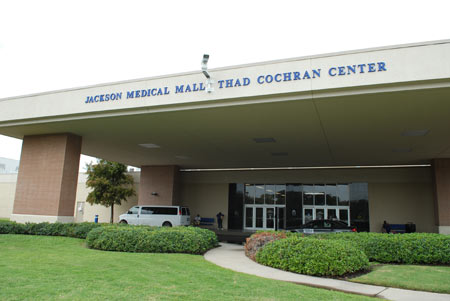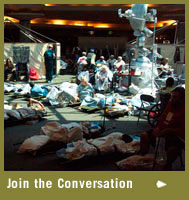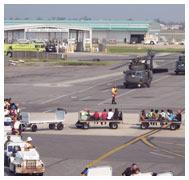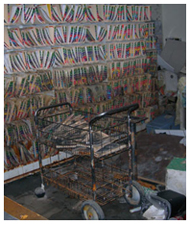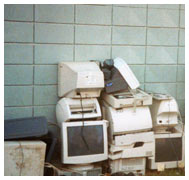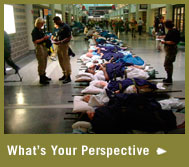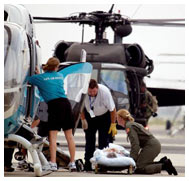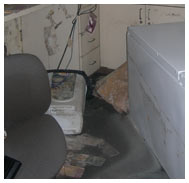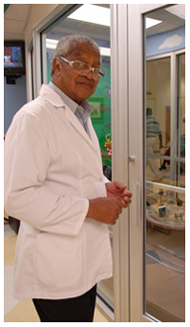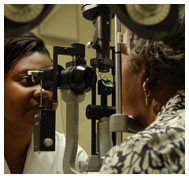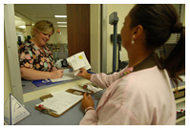The Greatest Need
"We needed to be where our patients were, so we packed up what we could salvage and
followed our patients."
—Michael Andry, EXCELth Community Health Center, 2006
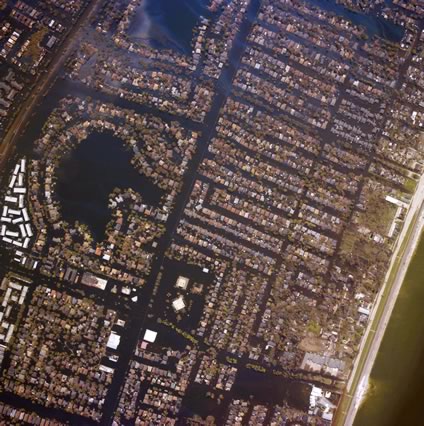
Courtesy AP Photo/NOAA
In the summer of 2005 Hurricane Katrina swept across the southern United States, causing extensive damage as far as one hundred miles from the center of the storm. The devastation created a health care crisis for the Gulf Region. As well as injuries caused during this catastrophic event, many poor residents who had been unable to evacuate were also dealing with long-term health problems.
In the days afterwards, the very young, the elderly, people with disabilities, and those with chronic illnesses were particularly at risk. Some had lost their medicines when they were forced to flee. Others were unable to continue ongoing treatment at area hospitals. Residents relied on disaster response teams from other states and community health centers for help. Medical staff and volunteers set up temporary clinics wherever they could.
Under One Roof
"We're providing services to people, thousands of people each year, who otherwise would not receive the care that they need." —Aaron Shirley, Jackson Medical Mall Foundation, 2007
